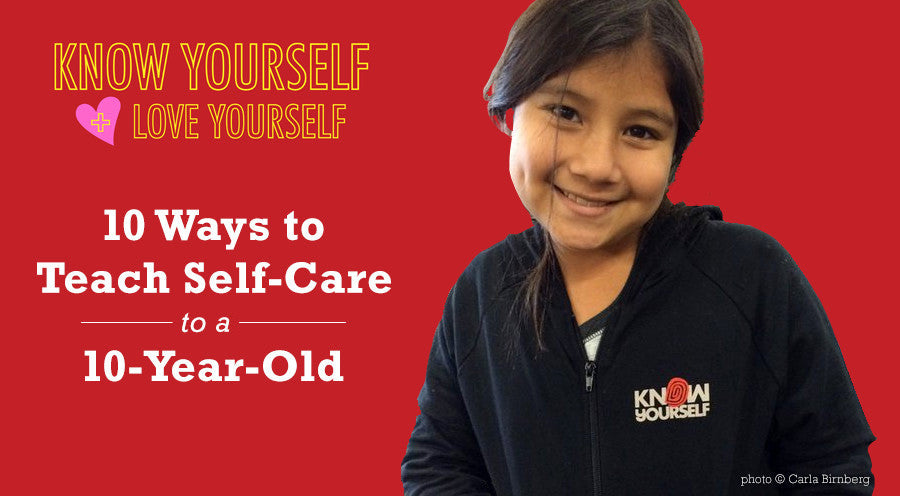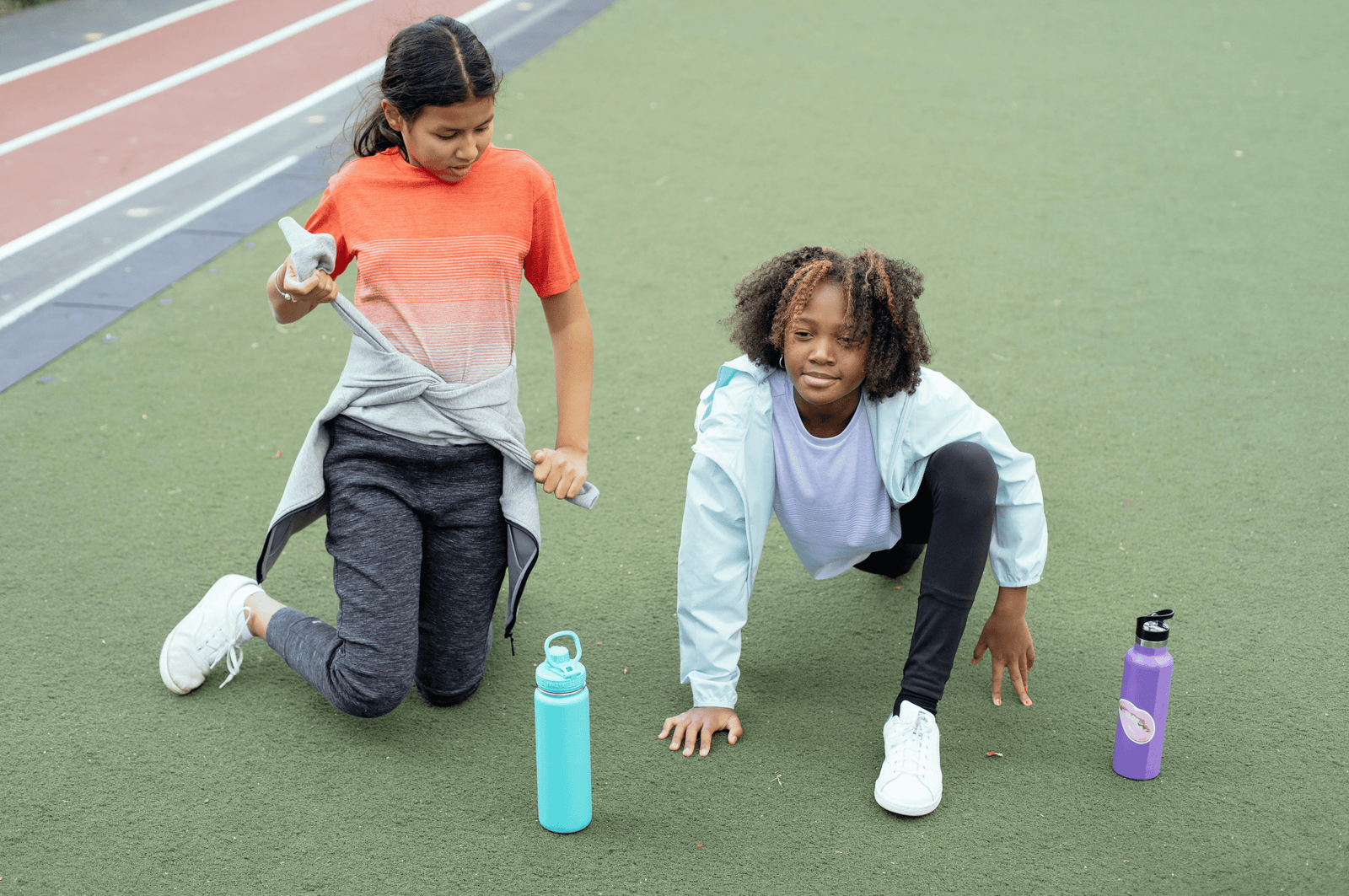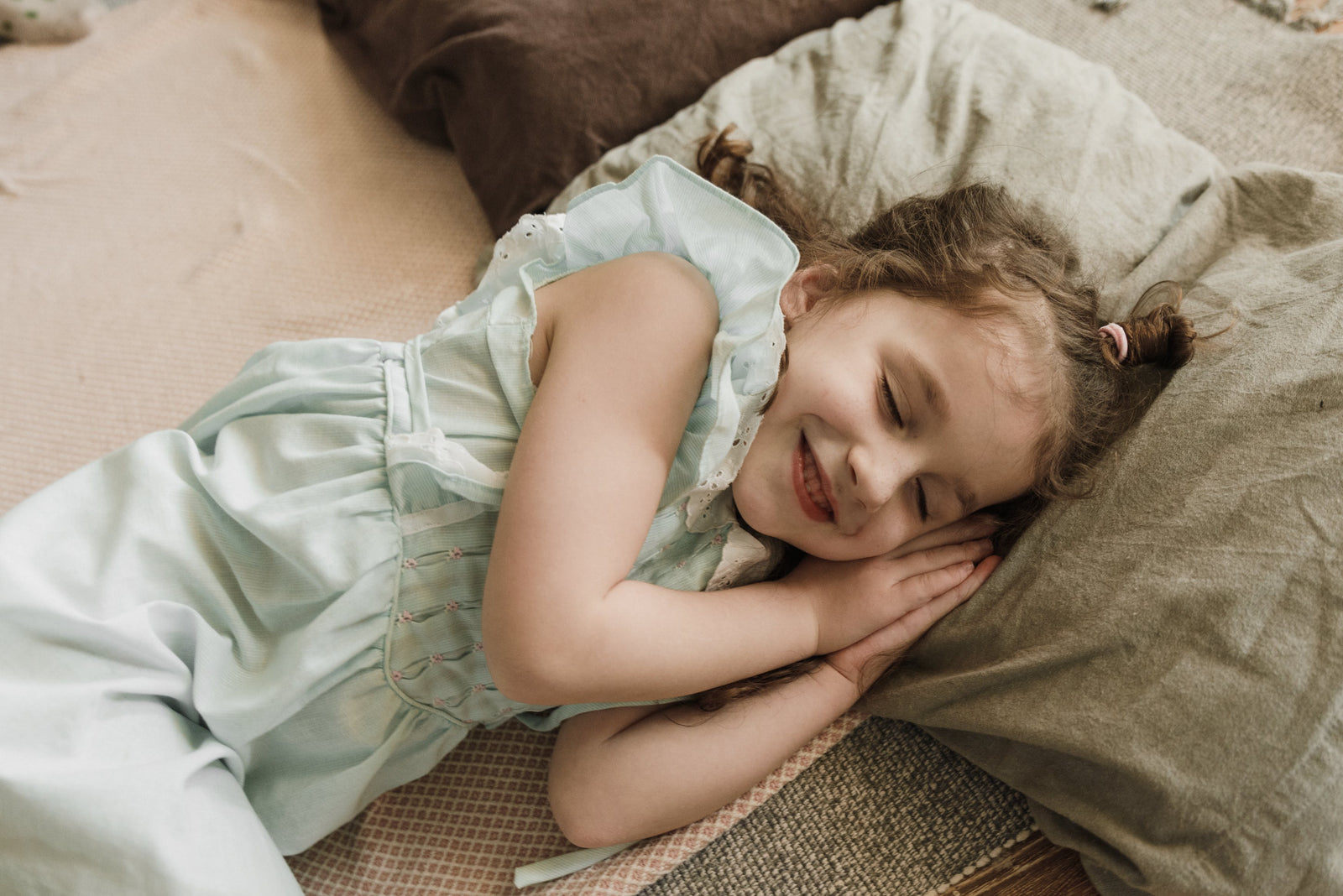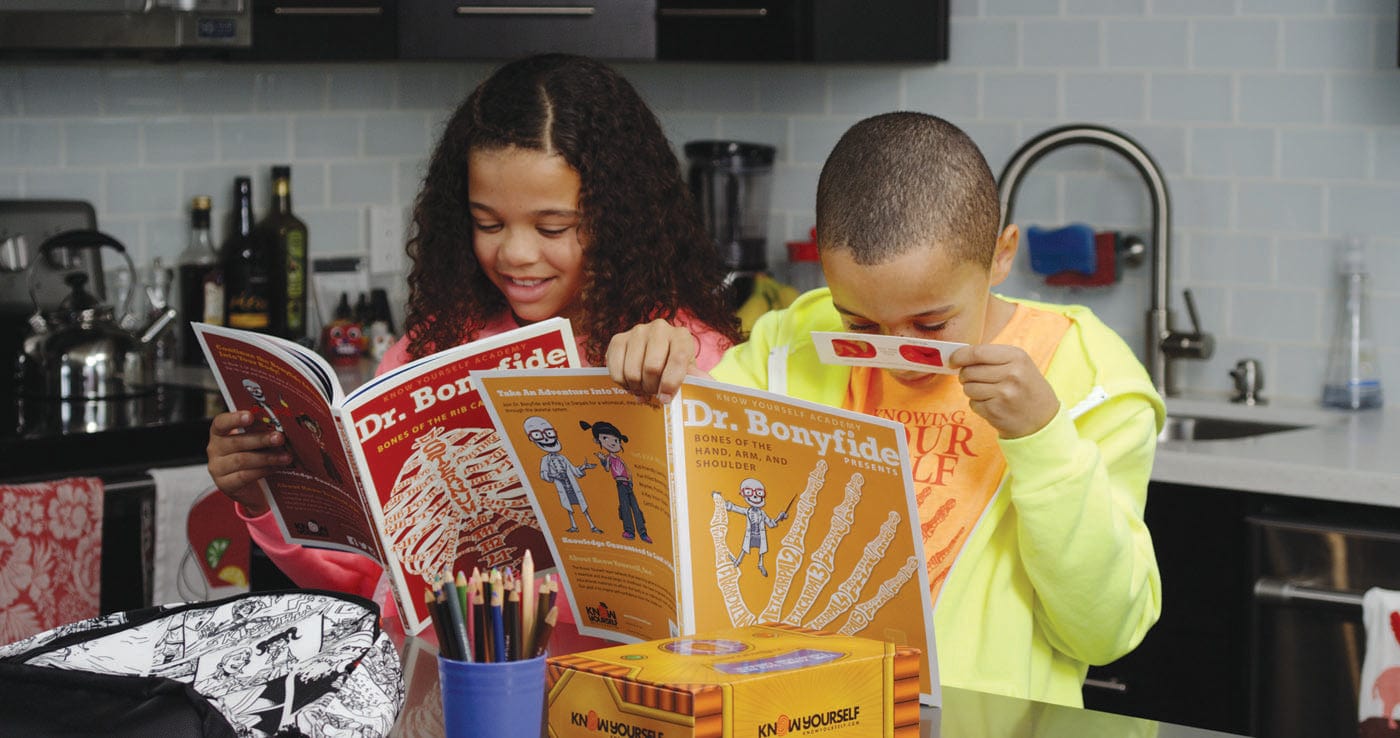
Loving your body begins with knowing how it functions. Leading up to the holidays, we’re encouraging kids not only to know themselves but to also love themselves from head to toe, with our self-care skills for 10-year-olds. Since our focus leans towards the anatomical, we’ve consulted with renowned fitness and self-esteem expert, Carla Birnberg, to explain how she practices self-care with her daughter…
One morning, when my daughter was five, she followed me around the house. The sort of following where she practically pressed up against me as I went about my routine:
One morning, when my daughter was five, she followed me around the house. The sort of following where she practically pressed up against me as I went about my routine:
Brushing my teeth?Five-year-old smooshed at my side. Washing my face?Five-year-old face mashed up against mine. Finally, in a fit of exasperation, I asked her what she was doing:“I’m watching you, Mama. I’m learning how to be a woman someday.”
Now, five years later, I think about that morning a lot. Back then, it was just a silly story I shared with friends. Now, as she occupies that awkward space of not-yet-tween and no-longer-child, it means more than ever. At age five she precisely epitomized what I believe my job is as a mother: To teach my daughter self-care skills for her 10-year-old self (in all the many forms it takes), which can also serve as a model in terms of how to be a woman (in whatever form she chooses). I feel, as a parent/caregiver, it’s my responsibility to teach my daughter self-care and present it in a way she’ll find fun and exciting; an opportunity to learn more about herself inside and out.
Here are 10 self-care skills for 10-year-olds - it’s how my daughter and I practice self-care together:
1. We are the sum of how we spend our time.
This is a big one for me as I’ve found it to be exceedingly true when applied to myself. Choosing to spend the day inside, as opposed to outside moving around, is one of the many choices we make that, when added up, affect our bodies. I teach her this through the simple notion of how an object at rest stays at rest. Yes we may need or elect to have restful moments during our days, but we work to make those sedentary times—be they mental or physical—a preference rather than a default.
2. We shed the screen and read a book together.
Typically we alternate who chooses the book (she’s a Dr. Bonyfide fan and I lean toward my favorite classics), but screen-shedding is non-negotiable. Everything from her homework to her pleasure reading can be done using a screen. I work hard as a parent to show her the importance of taking various approaches to learning and that sometimes “old-fashioned” methods can be both emotionally soothing and intellectually valuable - it’s what I consider a vital kids’ self-care skill.
3. We play high/low.
This is a game we started when she was little and, to my delight, still plays happily at ten. The rules are simple: You must have a high for your day. You do not have to have a low. You cannot argue with or criticize anyone else’s answers. Our game has matured as she’s matured. I started it in an effort to emphasize the importance of talking about our feelings, in order to teach her how to both identify emotions and put them into words. I’m amazed by how articulate she has become, now that she knows that I will listen whenever she’s willing to share.
4. We seek (not sneak!) our healthy habits.
I don’t believe in hiding healthy ingredients in the food I prepare for my daughter. I don’t sneak black beans into the brownies. I bake black beans into the brownies and challenge her to see if she can taste them. We like to play together in the kitchen, add healthy ingredients to our smoothies, purées, etc. and see if the other person can guess what we’ve added in. I’m a firm believer in the notion that sneaking doesn’t work. You’re neither creating a habit (she’d have no idea she was eating kale!) nor are you building trust (Why didn’t you tell me there was spinach in there?!).
5. We journal.
I’ve created a mother-daughter journal with simple questions at the top of each page. Anything from: “Who is your best friend and why?” to “What’s the nicest thing anyone has done for you?” I also created questions that give me the opportunity to share my experiences with her. Her prompt might be “What makes you nervous about becoming a grown-up?” versus mine, “What’s the hardest thing about being a grown-up?” We alternate writing our answers and then read them aloud to the other.
6. We have 60-second dance parties.
This burst of cardio self-care has changed somewhat as she’s gotten older, but it’s a burst of spontaneous movement we still do daily. When she was little it served to break up our days together or as a transition between toddler activities. Now we tend to use it for a movement break during homework time. What can be a better self-care skill for kids than to take a break in between study or homework time to unwind and also get some much-needed physical exercise? One of us shouts “Dance Party!”, turns on some music, and we’re off and shimmying. Sure we’ve shifted away from The Wiggles toward whip and nae nae but it’s still as fun as ever.
7. We pay our rent together.
One of my favorite quotes is one by Marian Wright Edelman. The quote, “Service is the rent we pay for living,” is one I don’t know my daughter has ever heard specifically. But it’s one we both practice as much as we can. We prioritize serving and helping others. We discuss the good feelings that acts of kindness bring to us as well (the old helper’s high) and how often self-care is as simple as seeing what you can do to lift up those around you. It’s another one of my crucial self-care skills for 10-year-olds as it can never be too early to encourage children to practice kindness.
8. I make learning about body stuff fun and not embarrassing… or at least I try.
When she was younger, I focused almost entirely on the fun. Now that she’s older the “why” is more important than the ‘what.’ She’s curious about the details. She wants to discuss how germs spread and how things like hand washing can prevent illness. She’s more interested in the preventative measures of teeth brushing than in singing songs to be certain she’s brushed long enough. Through explaining the ‘whys’ in a fun accessible fashion, she has a better grasp on why there are certain things she has to do for her body and, in my opinion, is more likely to maintain these behaviors when she reaches a more independent age. Therefore learning about the benefits of self-care routines is definitely one of the self-care skills for 10-year-olds that I hold valuable.
9. We PLAY!
There’s so much pressure on tweens to buckle down, get serious and focus on academics. When a ten-year-old does extracurricular athletics, the coaches and other parents have a tendency to remove the fun from the sport by piling on the pressure to perform from the sidelines. Sure, success is important, but so is playing. And personally, I prioritize play. I make her take breaks from homework to go to the playground. I want her to enjoy moving her body in a fun and unstructured fashion. Additionally, I’ve found that I can benefit from play too (at age 46)! It replenishes my creativity and rejuvenates me until I’m ready to focus again.
10. I focus on “wings” and remind myself we’ve created roots.
The biggest piece of self-care is feeling empowered. It’s learning to trust your gut, believing in yourself, and having confidence in your choices. As I send her out into the world more frequently on her own, I focus on teaching her to listen to her inner voice, live intuitively (but safely), and know when to ask for help.
I hope you have as much fun as I did, teaching your child these self-care skills for 10-year-olds. For those of you with younger children, spoiler alert: My ten-year-old, while a smidge more serious when it comes to learning self-care skills for 10-year-olds, is no less exuberant than the five-year-old who once followed me around the house. And, if you’re as lucky as I am, when your own child reaches that age, she’ll possess the right amount of insight and sass to keep motherhood an ongoing adventure.
Know Yourself is committed to making health literacy as fundamental as the ABCs or 123s. Our diverse collection of books is designed to inculcate a deep sense of self in children and inspire them to make healthy decisions about their minds and bodies - all in a fun and engaging manner. Shop now!
Sierra Sternum, from Dr. Bonyfide Presents: Bones of the Rib Cage and Spine.
Carla Birnberg is an award-winning writer, speaker, healthy living and fitness expert, community builder, and social media maven. With “unapologetically myself” as her motto, Birnberg encourages others to carve their own unique paths to longer, healthier, and more vibrant lives. She is the co-author of What You Can, When You Can (Seal Press), an inspirational handbook that shares Know Yourself’s philosophy that understanding who YOU are can lead to having a happier, healthier life. You can follow Carla at carlabirnberg.com or on Twitter @carla_birnberg.









Alyssa
June 06, 2021
Thank you for sharing this amazing post! So many good ideas and an overall great resource I will refer back to! Have a good day!